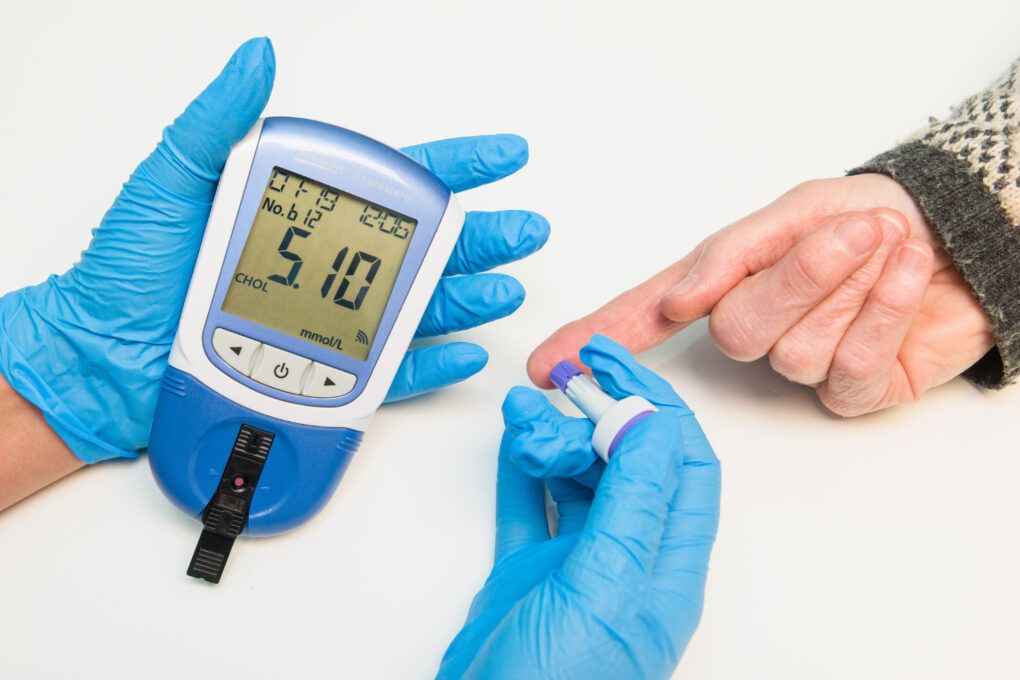‘Why Our Future Health will change the future of diabetes in the UK’

Our Future Health is such an amazing research project that, the moment I heard about it, I knew that it was something I wanted to be part of.
I booked an appointment to join as soon as I could – at Boots Pharmacy in Piccadilly, central London. It’s near where I work, so I was able to pop down during a lunch break. It only took 20 minutes.
As the Chief Executive at Diabetes UK, I spend a lot of my time working with people with diabetes and working for improvements in the way we approach diabetes healthcare. I’m convinced it’s an area where Our Future Health will lead to significant, positive changes.
Numbers game
There are currently five million people in the UK living with type 1 and type 2 diabetes. Of those, we estimate there are around 850,000 who have type 2 diabetes but who aren’t yet diagnosed. Millions more are at an increased risk of type 2 diabetes.
Our Future Health may be able to help us find ways to bring those numbers down – and improve the lives of those who are diagnosed with diabetes.
What excites me most about this research is the combination of its scale and its commitment to diversity. Not only is Our Future Health aiming to recruit up to five million volunteers, it is also making sure it attracts a cohort that reflects the whole of our society and communities, which means its volunteers are from diverse backgrounds.
I’ve seen in the past how big cohort programmes – meaning studies that look at a lot of people – lead to great strides forward in our understanding of diabetes treatments and prevention. They result in discoveries that you simply can’t get from a sample of a few thousand people.
Our Future Health blows even those big cohort programmes out of the water. Five million people is just an incredibly large amount of people. And their health is going to be followed over time (the research is longitudinal), so we’ll be able to track where and when conditions like diabetes develop.
It’s only when you have these large-scale numbers that you begin to see some of the trends and underlying themes playing out. For example, it might highlight more details about what makes somebody more at risk of type 2 diabetes, based on genes and the impact that lifestyle might have on those genetic factors.
Numbers game

One of the big hopes we have for Our Future Health is that the information it collects will help researchers to find new ways to pick up type 1 and type 2 diabetes earlier.
The earlier we can identify people at highest risk, the more chance we have at stalling or preventing the conditions from ever developing. And by diagnosing the conditions sooner, it gives health professionals more time to support those with the condition. And, in the case of type 2 diabetes, even give people the best chance of putting it into remission.
By joining Our Future Health, you could help researchers find better ways to pick up all types of diabetes earlier and novel approaches to spotting who is at risk.
There are also huge discoveries to be made in how we treat the condition. The root causes of type 1 and type 2 diabetes, and how the conditions present, can differ from person to person. This means groups of people could benefit from having slightly different treatments based on their specific condition and characteristics. Our Future Health’s research means we might be able to see some of those differences more clearly in the future and be able to better tailor treatments to each individual.
Representing all types of people
It’s crucial that people from all backgrounds join this research.
Type 2 diabetes used to be a condition that people mostly got in retirement, whereas now we’re seeing a huge growth in diagnoses amongst people of working age. They’re presenting with more serious complications much earlier, so the form of type 2 diabetes seems to be more aggressive. To truly benefit the research, we need to ensure that we get a good age diversity within Our Future Health, from those in their late teens to those in their 90s.
We also know that type 2 diabetes presents differently in people from different ethnic groups. If you’re South Asian, African or Caribbean, studies have shown that you’re more likely to get type 2 diabetes, your risk is greater at a younger age, and at a lower BMI. In addition, the complications you might experience are different to those from the European population. As a result, it’s important that we see a wide representation from those groups joining Our Future Health.
Diabetes UK is proud to collaborate with Our Future Health on this research, as it will undoubtedly result in significant breakthroughs in a number of long-term health conditions. This invaluable data will be used by many researchers over the coming years.
We’re encouraging everyone to take part, but especially those with, or at risk of, diabetes, to ensure diabetes is well-represented within the sample.
By taking part, you’ll be one of five million people helping the health of the country. I’m hoping that if you put your data in today, your children and families will benefit in the future.
Diabetes UK is an affiliate charity of Our Future Health. For more information on diabetes, visit diabetes.org.uk

Let’s prevent disease together
By volunteering for Our Future Health, you can help health researchers discover new ways to prevent, detect and treat common conditions such as diabetes, cancer, heart disease, stroke and Alzheimer’s.